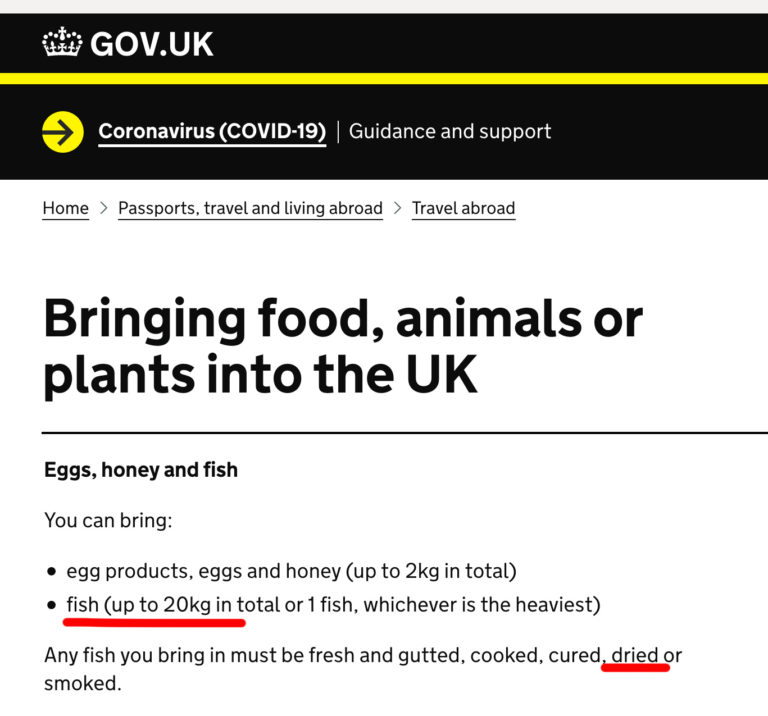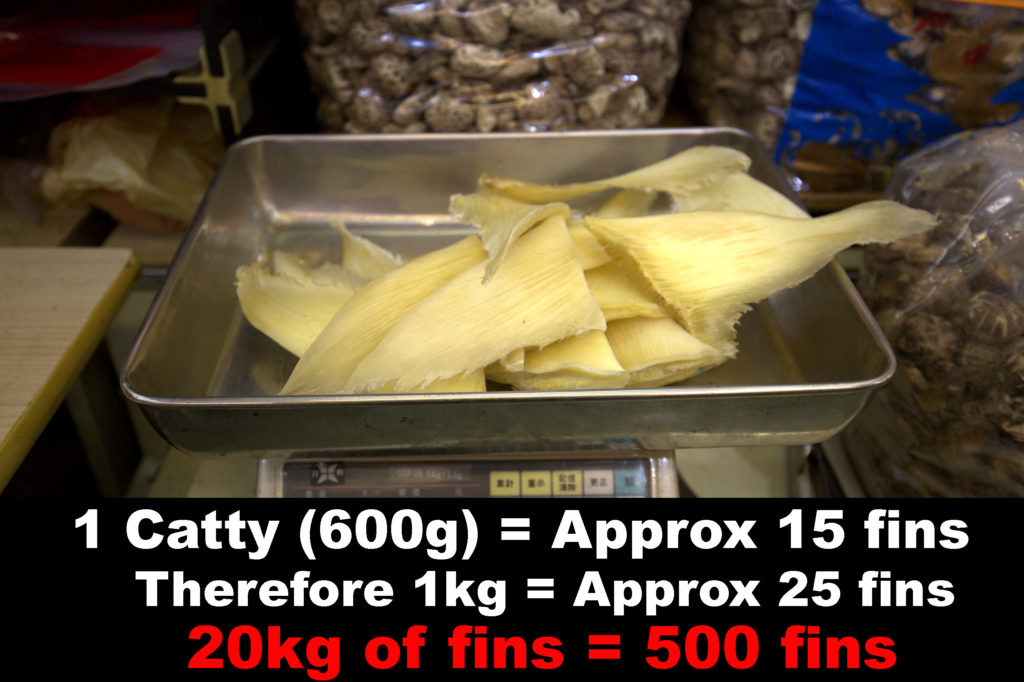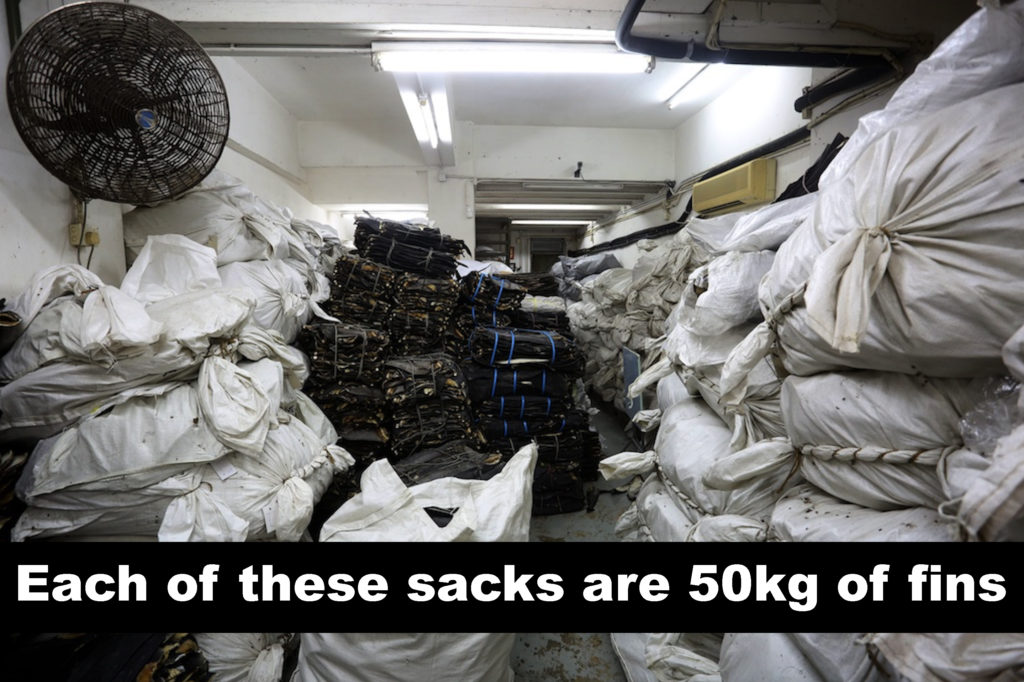20kg of Potential Shark Fin Tax Evasion
Brexit divided a nation right down the middle and the full implications are yet to be realised, however a post-Brexit Britain now has the opportunity to address some of the laws that were flawed and caused many to vote to leave the European Union. Whether you were in the LEAVE or REMAIN camp, when it comes to the conservation of wildlife we should all be in the same camp. One of these loopholes allows individuals to carry up to 20kg of shark fin into the UK tax free.
A petition has been set up calling on ALL BRITISH CITIZENS to add their names to a growing list, and If the target of 100,000 names is reached by September 11, 2020, Parliament will be required to discuss the issue.

The Issue
Currently, to the surprise of many, you can legally enter the UK carrying up to 20kg of shark fin as part of your Personal Allowance. This is the same as your personal allowance for alcohol, tobacco and other items. This is DUTY FREE. This falls under the category of 20kg of “Dried Fish parts”. The Customs limit is up to £390 per person, yet 20kg of shark fins far exceeds this amount.
There are several obvious concerns that we have with people arriving and taking the Green Channel (Nothing to Declare) upon arrival.
Where did the fins come from?
Were the sharks caught illegally in violation of a countries national laws? There is no traceability of shark fins currently.
Are any of the fins from CITES controlled species?
If on the off chance the 20kg are inspected, what measures are in place to identify any of the species that are listed on the CITES Appendices? Are the border control officers adequately trained to identify, as most countries do not have the expertise to conduct a thorough inspection. CITES (Convention on International Trade in Endangered Species) is the treaty that restricts the transportation of endangered species across international borders.
Possible Tax Evasion?
What measures are in place to value a shipment of 20kg of shark fins. Even if species cannot be determined, the market price for common legal fins such as from blue sharks and black tips far excedes of the £390 limit.

The Economics
The market price in Hong Kong for shark fins is clearly displayed in all the dried seafood shops in the Sheung Wan district. The shark fin traders use an old measurement known as a Catty which is 600grams.
The lowest price in the picture above is HK$1,380/catty
HK$1,380/6 x 10 equates to HK$2,300/kg (£223/kg) x 20kg = £4,460 for 20kg
The highest price in the picture above is HK$5,800/catty
HK$5,800/6 x 10 equates to HK$9,666/kg (£937/kg) x20kg = £ 18,740 for 20kg
Therefore anyone entering the UK/EU with 20kg of shark fins would be in excess of the £390 allowance.
This also raises the issue of potential money laundering and smuggling, as individuals are only allowed to carry a maximum of 10,000 Euro into the country by law.

To give an indication of quantity. The image below shows a set of scales with 1 Catty (600g) of mid-size 4-5″ fins, approx 15 fins. This would equate to approx 25 fins per kg, or 500 fins of this size in a 20kg shipment. Of course the larger the fins, the less that would be needed to make up 20kg.


When people think of illegal fishing and wildlife crime, they often thing of people at sea poaching fish, but the actual act of illegal fishing is just one small component of fisheries crime. We can find crime at every stage of the fisheries supply chain, from the fraudulent, deceptive, or exploitative recruitment of crew and the forgery of paperwork, to illicit transshipment and smuggling, and at every stage, illicit profits need to be laundered and taxes avoided. This is why we prefer the term ‘fisheries crime’ or ‘fish crime’ rather than illegal fishing, as it more fully captures to comprehensive way in which crime pervades the entire fishing industry.
Tax evasion and money laundering are some of the more common crimes associated with fish crime. Tax crime can take a number of forms, ranging from “the evasion of import and export duties on fish and fish products transported across national borders; fraudulent claims for VAT repayments; failure to account for income tax on the profits from fishing activity; and evasion of income tax and social security contributions and false claims for social security benefits by fishers and their families” (source).
The values involved here are not small. One case involving dried codfish, reported on in ‘Evading the Net: Tax Crime in the Fisheries Sector,’ detailed a company’s complex dried codfish import/export scheme. Here, through the use of inaccurate description of goods, the company in question was able to evade $500,000 USD in VAT from the exporting country, and an estimated $2.5 million USD from the importing country.
In another case, a 2011 investigation by the Norwegian Tax Administration estimated that “in the fishing industry income tax was not declared on approximately US$216 million…, estate tax was not declared on about US$ 325 million, and VAT on an estimated US$ 1.73 million was not paid (Source, p.108)!
As species are pushed to the brink of extinction, prices for wildlife products can skyrocket, fueling poaching and smuggling. We cannot diminish the impact of illicit wildlife smuggling on wildlife, ecosystems, and state coffers. The value of illicit wildlife products can often exceed the value of other contraband. For example, between July 28 and August 12, 2020, 19 kg (161) totoaba swim bladders (fish maw) were seized by authorities at Taiwan Airport. The value of these swim bladders, over $900,000 USD!
Ultimately, fisheries crime is a complex crime, demanding cooperation across jurisdictions and between agencies. It is not just a conservation of fisheries management problem, but a serious form of transnational organized crime. While customs officials may be trained to recognize narcotics or ‘conventional’ contraband like alcohol, tobacco, or weapons, wildlife products, like shark fins, may fall through the cracks. Collaboration and cooperation is critical!
While collaboration and cooperation is critical, the UK Government must also close obvious loopholes being exploited by criminals.
JOIN US in demanding the UK government to take action and sign the petition now!
